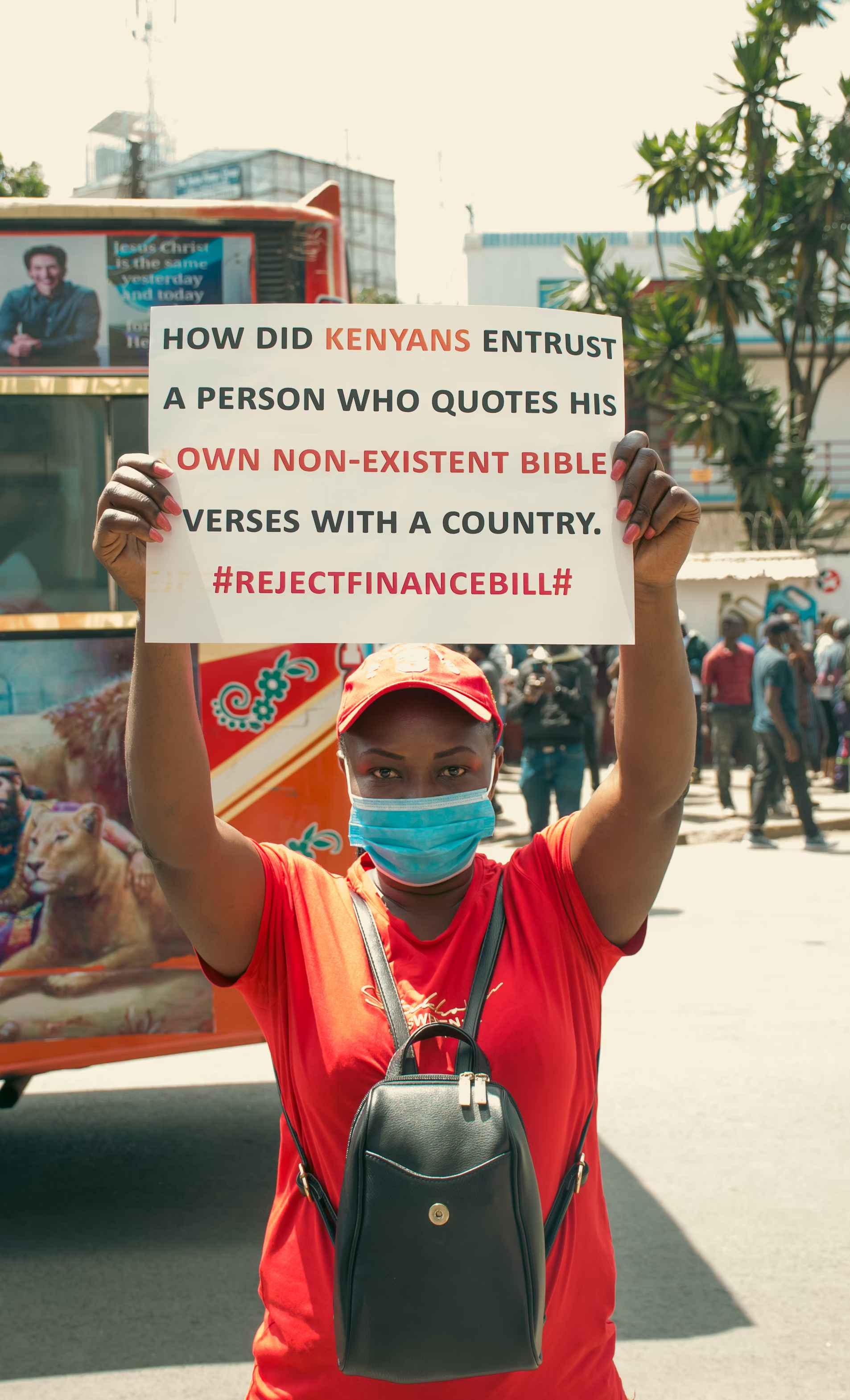In recent weeks, Kenya has witnessed a groundswell of youth-led protests erupting across major cities and towns. At the heart of these demonstrations is a vehement opposition to the provisions laid out in the Finance Bill of 2024, which proposes significant increases in taxes affecting various sectors of the economy. The protests, characterised by impassioned chants and vibrant placards, underscore a deeper concern among the youth regarding economic liberty and the impact of fiscal policies on their livelihoods.
Understanding the Finance Bill of 2024
The government introduced the Finance Bill of 2024 to bolster revenue collection and address fiscal deficits. It has sparked widespread discontent among Kenyan youth. Key provisions of the bill include hikes in Value Added Tax (VAT) on essential goods and services like bread, mobile money services and sanitary towels. The bill also increases excise duties on commodities such as fuel and telecommunications, while increasing income tax. These measures, while intended to shore up public finances, have raised concerns about their potential adverse effects on economic growth, job creation, and affordability for ordinary citizens, particularly the youth.
Economic Liberty and Youth Empowerment
At the heart of the protests lies a fervent defence of economic liberty. The protestors are fighting for the freedom of individuals and businesses to engage in economic activities without undue government interference or burdensome taxation. For many Kenyan youths, economic liberty represents not only the ability to pursue entrepreneurial endeavours and secure employment, but also the opportunity to achieve financial independence and contribute meaningfully to the nation’s development.
The youth-led demonstrations underscore a broader demand for policies that promote economic inclusivity through the new tax reforms, especially for young people and low-income earners, prioritise job creation, and safeguard consumer purchasing power. The protestors aim to foster a competitive global economy, with less taxation and more job opportunities, that empowers young people to thrive. They are working towards these goals by advocating for lower taxes, streamlined regulatory frameworks, and targeted investments in areas such as education and skills development.
Challenges and Implications of Fiscal Policy
While fiscal policy plays a crucial role in funding essential public services and infrastructure, its implementation must strike a delicate balance between revenue generation and economic sustainability. Excessive taxation, particularly on essential goods and services, can stifle consumption, deter investment, and exacerbate inequalities, thereby hindering long-term economic growth and social progress like quality of life.
Furthermore, fiscal policies need to account for their effects on vulnerable populations. This includes young individuals in marginalised communities and informal sectors, particularly in rural areas and the North Eastern region of the country. It is essential to minimise unintended consequences and ensure fair distribution of both burdens and benefits in terms of revenue collection and allocation. By engaging in peaceful demonstrations and advocacy efforts, Kenya’s youth are asserting their rights to participate in shaping policies that directly affect their economic prospects and quality of life.
The Role of Civic Engagement and Policy Dialogue
Beyond the streets, the protests highlight the critical role of civic engagement and policy dialogue in fostering democratic governance and accountable leadership. Youth-led organisations, civil society groups, and advocacy networks play a pivotal role in amplifying voices, mobilising support, and holding policymakers accountable for their decisions. Through constructive dialogue and collaborative efforts, stakeholders can forge a consensus on fiscal reforms by either amending or withdrawing the financial bill that prioritises economic growth, equality and sustainable development.
Toward a Future of Economic Prosperity and Civilian Equity
As Kenya navigates the complexities of fiscal policy reform, the protests serve as a poignant reminder to the country’s leader to focus on the aspirations of its young population rather than trying lavish lifestyles. Empowering youth through access to quality education, skills training, and entrepreneurial opportunities remains paramount to unlocking their potential as drivers of innovation and productivity for everyone in the nation.In conclusion, the demonstrations against increased taxes in Kenya underscore a fundamental commitment to economic liberty and equality. They have been vital ever since, government leaders turned a blind eye to the citizens and resorted to living exuberant lifestyles. To ensure a brighter future, Kenya needs to introduce bearable tax measures so that both present and future Kenyan generations may prosper. Kenya can chart a path towards a future where economic prosperity and individual freedoms go hand in hand. This can be done by advocating for transparent governance, fair fiscal policies, and meaningful youth engagement.

1 comment
Truly Reagan is a hero to the Kenya Youth Political Forum.
He has perfectly outline his case and views.